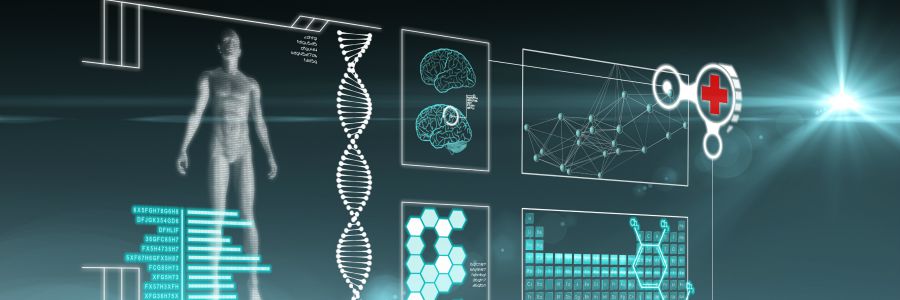Innovations in digital healthcare technologies are significantly changing the way healthcare providers deliver services to patients. Healthcare businesses are now able to address several key industry challenges, including improving healthcare accessibility and revolutionizing drug development.
3 Technologies that are revolutionizing healthcare
Stay balanced when working at home with these 7 tips

With the coronavirus disease or COVID-19 spreading around the globe at alarming levels, companies are opting to let their employees work remotely to reduce their risk of getting infected by the deadly virus. Remote working can help your employees cut down on commuting expenses and be more productive.
AI is transforming healthcare — here’s how
Cloud solutions have enduring value in healthcare

We’re long past the time when healthcare entities could justify being hesitant about cloud computing. It has surpassed on-site IT in terms of reliability and security if you know how to manage it properly. Just take a look at all the business benefits of cloud computing!
Easy information access
The increasing demand for doctors’ time means they have less time to review patient records.
Choosing the right EMR system

Medical professionals should always strive to give the utmost care to their patients, not only through proper diagnosis and treatment but with the best ancillary healthcare services as well. These are improved by the use of electronic medical records (EMRs). EMRs eliminate paper charts by digitally storing patients' medical history and treatment.
Reasons to consider online scheduling

Top-notch care is no longer the sole criterion patients have for choosing which healthcare facility to go to. They now also look for the convenience that online scheduling delivers.
Even if the use of smartphones, tablets, and other internet-connected devices has already permeated society, many healthcare facilities have trouble keeping up with the times.
The rising popularity of telemedicine

Telemedicine — the practice of administering medical care remotely — is increasing in popularity because of its practicality. Most healthcare businesses have been implementing it for decades. Because of advancements in the healthcare industry, the variety of devices used, communication speed, and overall service quality, telemedicine has vastly improved recently.
Here’s what to look for in apps or wearable tech

Are you overwhelmed by the many choices you have in getting the right technology to monitor your health? Do you download an app on your mobile to track your pulse rate? Or buy a wearable device that can tell you more about your health? While it’s best to leave the professional recommendations to your healthcare provider, it would be great if you’re also in the know, so you have a better idea of what suits you.
Big data helps hospitals in a big way

The healthcare industry struggles when it comes to trying to keep up with the latest technology on the market. Thankfully, the rise of more affordable cloud solutions and increased storage availability mean hospitals and clinics can finally catch up and implement direct improvements to hospital performance, such as lowering hospital readmission rates.
EHRs vs paper records: Which is better?

Is digital the way to go for the healthcare industry? Experts see no other way forward, as demonstrated by the popularity of electronic health records (EHRs). However, critics of this new recording process have pointed out major flaws that aren’t present in its traditional counterpart: paper-based recording.


